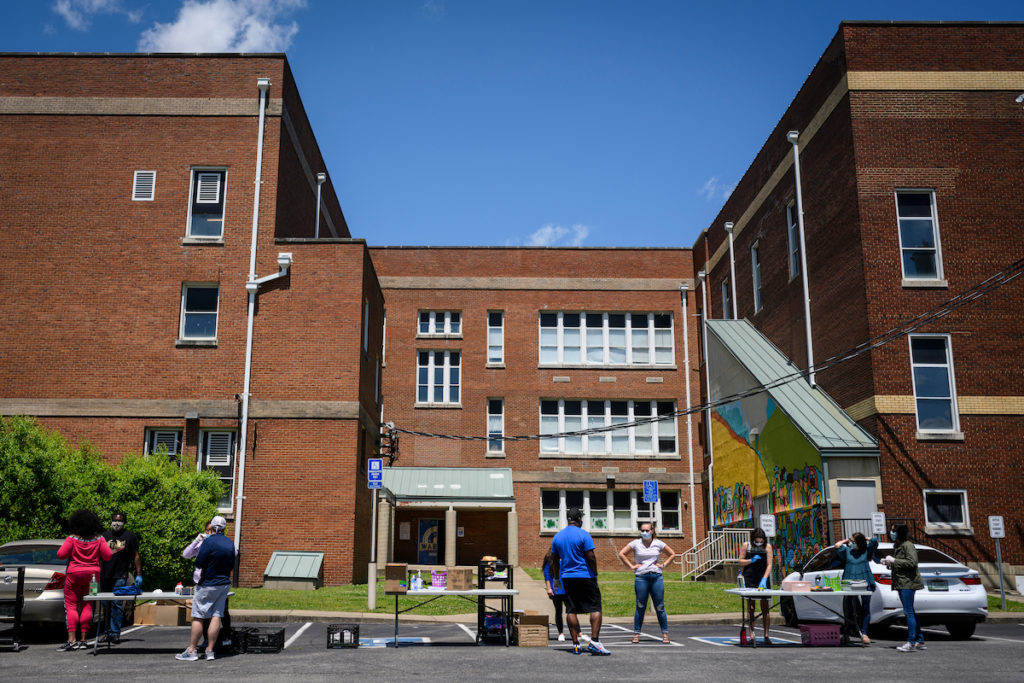
Ever since becoming a teacher at Metro Nashville Public Schools, Teneice Kirby had to choose between paying off her student loans or buying groceries. But, with the newly approved teacher raise, Kirby says she can now afford both.
“I’m so grateful, and I can’t say thank you enough,” Kirby said. “But, I know the fight is not over.”
Earlier this month, Metro Council passed a historic budget for MNPS, including $50 million to go toward pay raises for certified staff. That means, starting next school year, teachers will see thousands added to their salary as well as a revamped salary schedule — which some see as a bigger win than the raise itself.
In the new pay structure, teachers will be due a salary increase each year. The starting pay will also go up, but the biggest difference will take place for educators with 8-15 years of experience, who saw the least amount of raises in their tenure.
Research shows that better wages for educators have been linked to stronger job candidates, improved teacher retention and gains in student performance.
For some teachers, the raise will give them the opportunity to finally quit their second job or move to a better home. But, others are celebrating more cautiously — wondering if and how long their new salaries will keep up with the cost of living in Nashville.
“Well, you know, you got a raise this year, but how long will it take for them to give us another cost of living, right?” Kirby says. “Because things go up every year.”
Kirby, who teaches at Inglewood Elementary, expects to be paid $9,000 more starting next school year. She points out that, although the new salary schedule is promising, there’s no guarantee of another raise. Salary increases require the school board, the mayor and the city council to approve them. That’s why teachers have experienced salary freezes in the past and why this salary boost took years of protest and pressure.
To Kirby, another fight for better wages is inevitable.
“It’s a constant struggle to be paid what we’re worth,” she says.
Sean Braisted, an MNPS spokesperson, told WPLN News that the district recognizes future salary rises are an “essential component” to ensuring a high-quality education for Nashville students. He points out that, this year, the director of schools, Dr. Adrienne Battle, included pay raises in the district’s operations budget to ensure that it would be a non-negotiable when it reached Metro Council.
Meanwhile, surrounding counties are in the process of finalizing their school budgets.
Both the Williamson and Rutherford County Schools boards voted for a 4% raise for their employees while the Murfreesboro City Schools board approved a 3% raise.
The Clarksville-Montgomery County School System finalized its budget and approved a 3% cost-of-living adjustment increase. The district also plans to use federal COVID relief funds to offer a retention bonus for all employees, a health service hazard bonus and a certified employee attendance incentive bonus, according to a CMCSS official.
In Nashville, the new budget will give a 2% cost-of-living adjustment increase along with annual step increases to administrators and support staff, which includes paraprofessionals, bus drivers and cafeteria workers.
Dr. Battle says this year’s particular investment in teacher compensation will both help with recruitment and retention. But, some are still considering leaving the profession.
Khiana Brown-Robinson, who teaches at AZ Kelly Elementary School, has not been able to afford moving out of her parent’s home on her teaching salary. Even with the raise, she’s unsure if she can afford a house of her own.
“I had thought about actually going into tech just because it’s so expensive to live here. It’s like, if you can’t beat them, join them,” she says. “So, the thing is, they’re going to have to keep changing the pay to match the cost of living here.”
Amanda Kail, the president of the Metro Nashville Education Association, says it ultimately remains up to teachers to keep policymakers accountable and committed to the new salary schedule but says she believes it’s “a new era” for teachers.
“The fact that not only the mayor made it a priority, but the fact that the entire Metro Council passed that budget unanimously is a really good sign,” she says.
Others are also optimistic for a host of reasons. They say it’s promising that the director of schools is a former teacher herself. In addition, this past school year showed just how essential teachers are. And they feel affirmed that years of organizing for better wages finally paid off.
Jason Chatham, who teaches English Language Learners at Shwab Elementary, says he feels a weight lifted off his shoulders. He says he used to spend hours before and after school working toward extra degrees and certifications. It was one of the only ways to get a significant pay raise. Even then, Chatham says, money was tight.
But now, he has the financial bandwidth to pay for things he’s been putting off — like remodeling his home, replacing his car since a tree fell on it and taking a family vacation.
“Personally, this money will be a huge help,” Chatham says. He hopes the raise will also help keep more experienced teachers in the district, especially to be mentors for younger educators.
Felicia Reed-Kidd, a science teacher at Haynes Middle School, has been teaching for 18 years. With the new raise, she’s considering quitting her side job as an Uber driver. She’s also excited to have more money to buy classroom supplies for her students.
“The fact that the correction is even being made and we are thought of, I’m every grateful,” Reed-Kidd says. “This is a start.”

